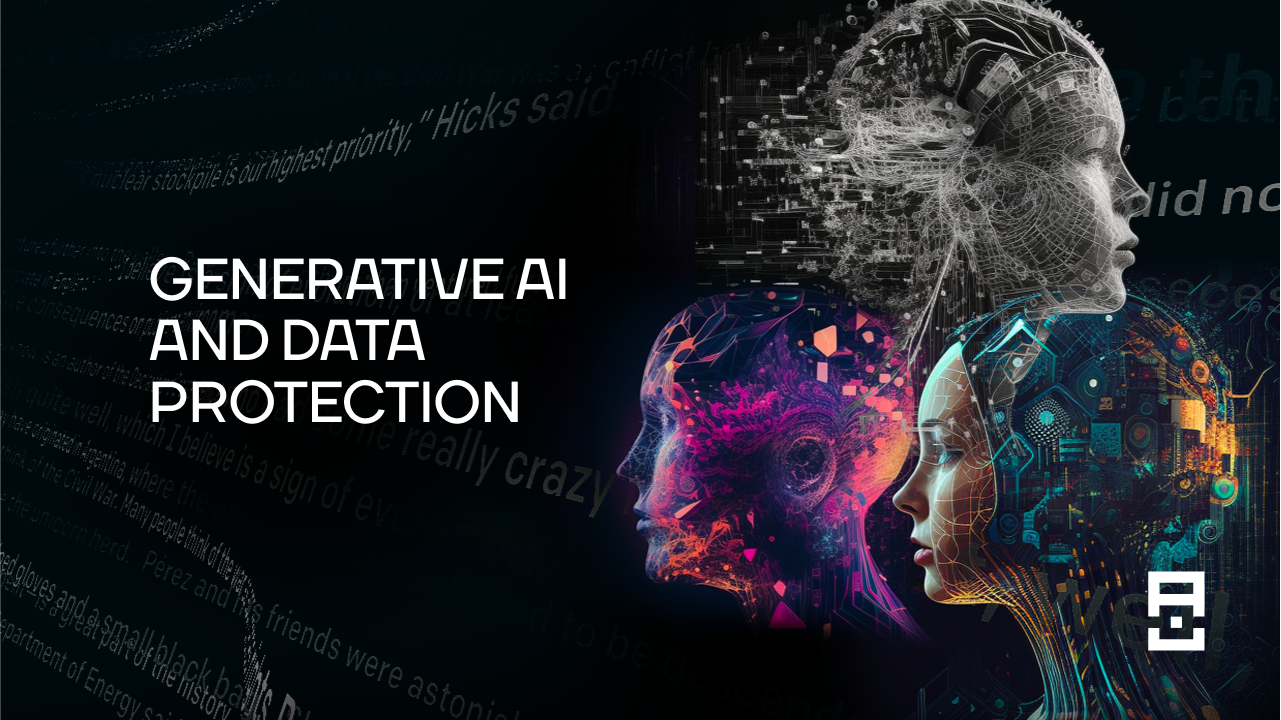Introduction: In today’s digital landscape, generative AI is revolutionizing industries by creating content, simulating conversations, and automating complex tasks. However, as this technology advances, it brings new challenges to data protection. The intersection of generative AI and data privacy is a crucial area for businesses, governments, and individuals alike to understand and navigate.
What is Generative AI?
Generative AI refers to a subset of artificial intelligence capable of generating new content based on input data. This technology can create text, images, music, and even entire virtual environments. The applications of generative AI are vast, spanning industries from entertainment to healthcare. However, the data-driven nature of these models raises significant privacy concerns.
Data Protection Risks with Generative AI
1. Data Breaches
Generative AI models require extensive datasets for training, which often include sensitive personal information. These large datasets are attractive targets for cybercriminals. A breach can result in the exposure of personal data, leading to identity theft and other malicious activities.
2. Inadequate Anonymization
If the data used to train AI models is not properly anonymized, it can be traced back to individuals. This lack of anonymization poses a significant risk, as it can lead to the misuse of personal information without the individuals’ consent.
3. Bias and Ethical Concerns
Generative AI models can inadvertently learn and propagate biases present in their training data. This can result in discriminatory practices and unfair treatment, raising ethical issues about the deployment of these technologies.
4. Regulatory Compliance
With regulations like the General Data Protection Regulation (GDPR) in Europe and the California Consumer Privacy Act (CCPA) in the United States, companies must navigate complex legal landscapes. Non-compliance can result in hefty fines and reputational damage.
Strategies for Protecting Data in Generative AI
1. Implement Strong Encryption
Encrypting data at rest and in transit is a fundamental step in protecting sensitive information. Advanced encryption methods ensure that even if data is intercepted, it cannot be read or used maliciously.
2. Anonymize Data
Data anonymization techniques, such as differential privacy, ensure that individual identities cannot be discerned from datasets. By adding noise to the data, these techniques make it difficult to link information back to specific individuals.
3. Regular Audits and Monitoring
Conducting regular audits of AI systems helps in identifying and mitigating potential risks. Monitoring AI outputs for biases and inaccuracies ensures that the technology is used ethically and responsibly.
4. Transparent Data Practices
Being transparent about data collection, usage, and storage practices builds trust with users. Clear communication regarding how data is handled and the steps taken to protect it is essential for maintaining user confidence.
5. Ethical AI Development
Developing AI with ethical considerations in mind is crucial. This includes ensuring diversity in training datasets, minimizing biases, and being accountable for the AI’s decisions and impacts.
6. Compliance with Regulations
Adhering to legal standards such as GDPR and CCPA is non-negotiable. Organizations must stay updated with regulatory changes and ensure their practices comply with data protection laws.
Conclusion
In the age of generative AI, the importance of robust data protection measures cannot be overstated. As these technologies continue to integrate into various aspects of our lives, safeguarding sensitive information becomes paramount. By implementing strong encryption, anonymizing data, conducting regular audits, maintaining transparency, developing ethical AI, and complying with regulations, organizations can harness the power of generative AI while ensuring the privacy and security of their users.
Navigating the complex landscape of data protection in the era of generative AI requires vigilance and a commitment to ethical practices. By doing so, we can unlock the full potential of generative AI while upholding the highest standards of data privacy and security.
FAQs on Data Protection in the Age of Generative AI
1. What is generative AI and why does it raise data protection concerns?
Generative AI creates content like text, images, and music from large datasets. It raises data protection concerns because it often requires extensive personal data, which can be vulnerable to breaches and misuse.
2. How can companies ensure data used in AI training is secure?
Companies can secure data by implementing strong encryption, anonymizing datasets, conducting regular security audits, and following strict data protection protocols.
3. What are the risks of not anonymizing data used in generative AI?
Failure to anonymize data can lead to privacy violations, as personal information can be traced back to individuals, potentially resulting in misuse and identity theft.
4. How do regulations like GDPR and CCPA impact the use of generative AI?
Regulations like GDPR and CCPA require organizations to protect personal data, obtain explicit consent for its use, and ensure transparency in data handling practices. Non-compliance can lead to significant fines and legal consequences.
5. What steps can be taken to minimize bias in generative AI models?
To minimize bias, organizations should use diverse and representative datasets, regularly audit AI outputs for fairness, and implement ethical guidelines throughout the AI development process.


